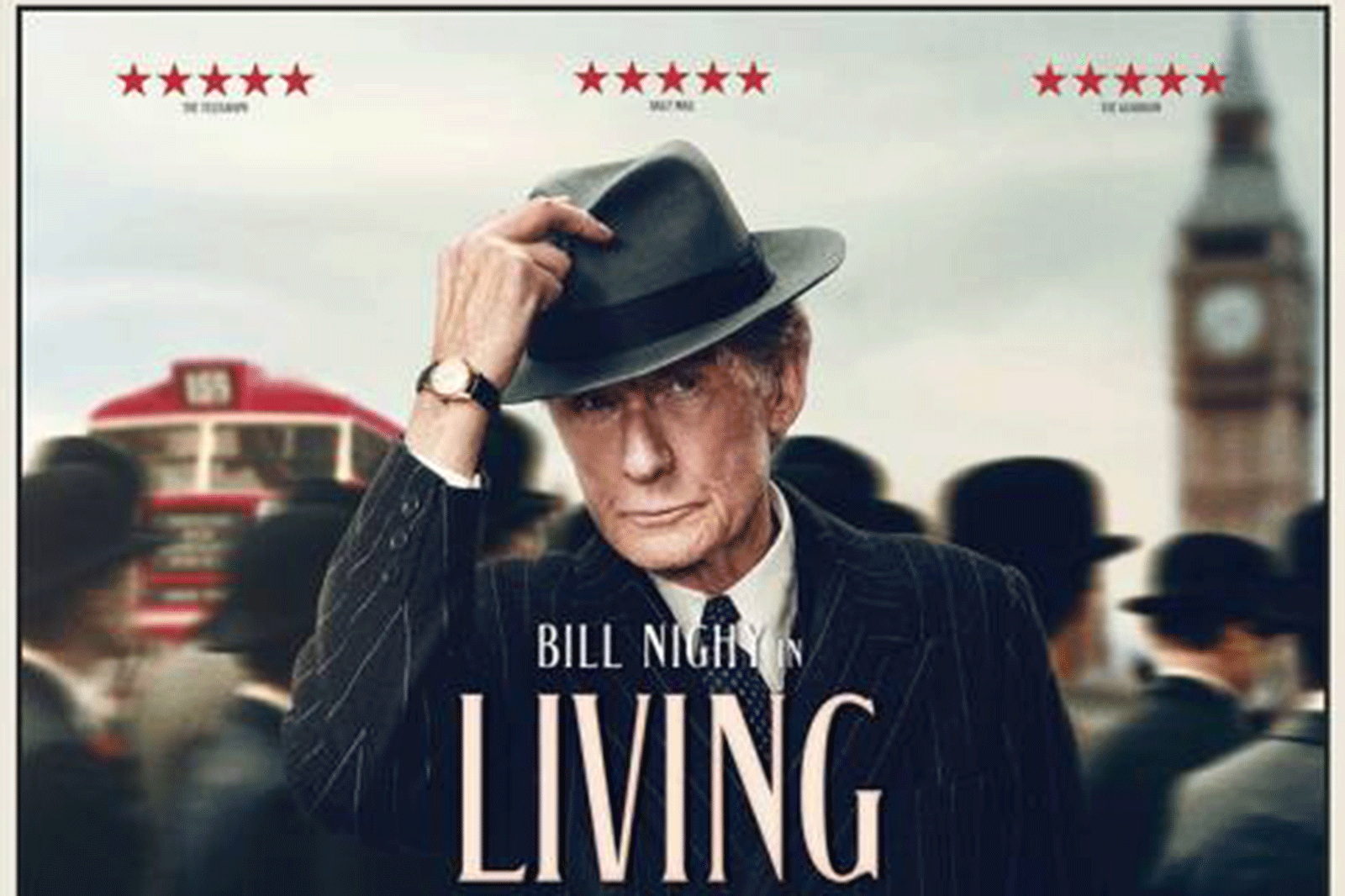I spent a recent cold and snowy week catching up on Oscar-nominated movies, either on streaming services or renting on Amazon Prime.
One was exceptional (“Tár”), a few were occasionally interesting (“Causeway,” “Aftersun,” “To Leslie,” “Triangle of Sadness”) and one was an abomination (“Blonde”). After this generally discouraging marathon, I had only two movies left to have seen all of the films nominated in the major categories — “Women Talking” and “Living.”
“Women Talking” has yet to be released in area theaters or on streaming, but “Living” was showing at the Gurnee Cinema. I debated whether I wanted to drive the 30 minutes to Gurnee to see what I expected to be another arthouse flick of questionable quality that seems to be what passes for Oscar material lately.
A few hours, and not an inconsiderable number of tears later, I can happily state that “Living” is not just the best movie I’ve seen this year, but might well be one of the best movies I have ever seen. Adapted by Kazuo Ishiguro (“The Remains of the Day”) from the classic 1952 Japanese film “Ikuru” by Akira Kurosawa, “Living” is about a reserved, staid post-war London bureaucrat named Mr. Williams (Bill Nighy) who as the film begins finds out he has six months to live. Faced with his mortality, Mr. Williams ponders deep questions about the value of his life and how to spend these last days. A lifetime dedicated to his soulless occupation which appears to be to act as the first line of bureaucratic red tape in the London public works department, he decides to play hooky from his job. At first, he seeks escape through an association with a local carouser named Sutherland (Tom Burke) who takes him on a tour of London’s pub scene. Not having found satisfaction, he happens upon former employee Miss Harris (Aimee Lou Wood), a fetching young woman who Williams associates with youthful optimism and idealism. He forms a connection with her, to the point where she is comfortable enough to confide in him her cruel nickname for him, Mr. Zombie, to which he sadly must agree. Finally, he decides that his meaning can be found by helping a local group of women trying desperately to get funding to turn a bombed out building into a children’s playground.
Everything in the film is first rate: the production design of post-war London, the period clothing, the score by Emilie Levienaise-Farrouch, the photography by Jamie Ramsay, and the direction by Oliver Hermanus. The structure of the film is quite interesting, as it tells its story straightforward until about the halfway point, at which time Mr. Williams dies. The remainder of the film is in the form of recollections from the people who knew him, or thought they knew him, as they reflect on his life, and through their recollections you find out how he spent those last precious moments. To say that I was profoundly moved by this film and this character would be an understatement. It raises probably the most existential question of our existence on this earth — how do we want to live our lives, and how do we want to be remembered?
Nighy, a veteran character actor probably best known as the aging rock star in “Love Actually,” is the heart and soul of this film. Mr. Williams is the poster child of stiff-upper-lip British manhood of that era — wooden, humorless, taciturn. To play a man who hides all his emotions from those around him and thus, from us the audience, and yet to communicate with the look in his eyes and the slightest movement of the mouth or head the deep well of feeling within him is remarkable. There are a couple moments in the film, especially near the end, where Nighy sings the beautiful Scottish folk song “The Rowan Tree,” and let me just tell you that for me the tears came as a flood.
I can’t say that this film will ever come to Kenosha, and it probably won’t be shown in Gurnee much longer, and whether a streaming service picks it up remains to be seen. But look for it, seek it out, and when the opportunity arises, watch it, and cherish it. Movies this good are rare gems.












